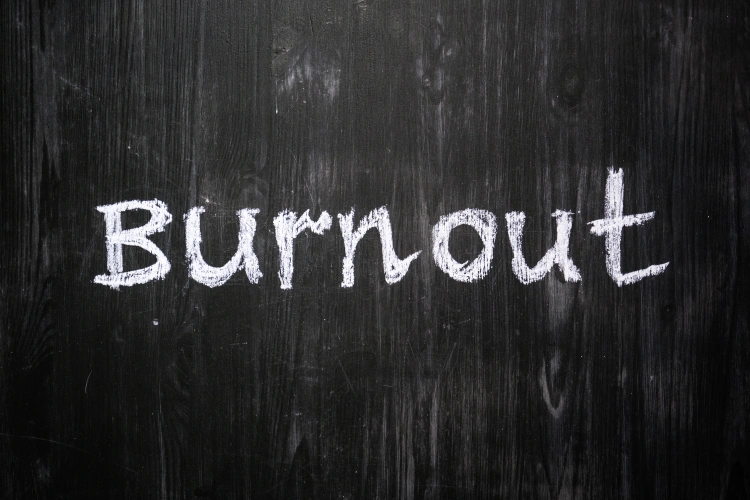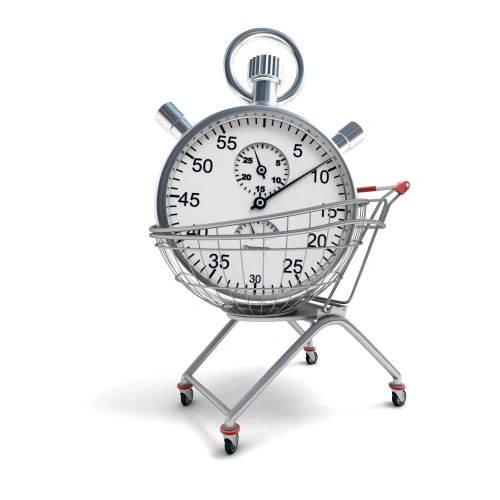7 Techniques To Combat Work Burnout
Your alarm went off roughly an hour ago. It hard to make it out of bed though, you drag yourself to the shower. The dark rings under your eyes, telltale signs that you had enough sleep.
Driving to work is an arduous task. You sit in your car in the car park for another 15 minutes before you drag yourself inside. You dread interacting with your cheery coworkers, some of whom are already curious about you lately.
It’s not that you are not an enthusiastic person; it’s just that you don’t feel like seeing anyone at your job, and you suffer this way every day.
If this sounds familiar, you may assume you’re anxious or stressed. But you might need to address an unusual problem: work burnout.

Research shows that many people who experience manifestations of work burnout don’t believe their work is the underlying cause.
Burnout is a state of emotional, visible, and mental exhaustion caused by prolonged stress. It occurs when you feel overwhelmed, wearied, and helpless to accommodate constant demands.
As the stress remains, you lose the enthusiasm and motivation that prompted you to assume a certain role. If left unchecked, burnout can be harmful. So if you’re anywhere between dried and burned, it’s time to take a step back.
There’s no specific medical disorder called burnout, but every doctor knows that prolonged stress has negative consequences for your health, organs and mental wellbeing.
Burnout makes you less productive and feeling exhausted even before you start your day, leaving you feeling helpless, hopeless, pessimistic, and irritated by those around you.
Work Burnout is not the Same Thing As Stress
Work burnout is not the same thing as stress, though we often think of them as the same thing because the early burnout signs are like stress. Burnout at work may result from unrelenting stress, but it isn’t the same as too much stress.

However, stressed people can still imagine that if they can get everything under control, life will be better. Burnout is not enough. Work burnout means feeling empty and exhausted, devoid of motivation, and beyond caring at work.
People experiencing burnout don’t conceive any hope of a practical change in their situations.
If excessive stress feels like you’re drowning in a sea of commitments, burnout is a sense of being all used up.
And while you’re aware of being under any stress, you rarely know burnout when it happens.
Work Burnout Symptoms
Burnout symptoms present themselves in diverse ways. If you answer yes to any of the below questions, you might experience job burnout.
Consider talking to a doctor or a mental health provider because we can also relate these symptoms to health conditions, like depression.
- Have you become pessimistic or critical about tasks at work?
- Have you become impatient with co-workers, customers or clients?
- Do you find it hard to remain focused on a goal for long?
- Do you find it hard to concentrate and stay consistent on a task?
- Do you lack satisfaction from your achievements, no matter the accolades you receive, you feeling you don’t deserve it?
- Do you feel disillusioned about your work goals?· Are you using drugs, alcohol or food to feel better or numb your feelings?
- Do you drag yourself to bed, but toss and turn for hours and wake up tired still?
- Are you troubled by unexplained headaches, bowel problems, or other physical complaints?
To combat burnout, be intentional about the actions and techniques you will use to bring yourself back from burnout.
Techniques to Combat Work Burnout
1. Talk About It
Negotiate your contributions at work with your supervisor or line manager. Are you doing more or saddled with responsibilities that should be shared with others?
Will you need improved work tools or more experienced hires in your department?
Do you need a break?

Were you afraid of saying no to your boss and taking on more work than you can handle?
Discuss this and agree on ways you can achieve your goals without burnout.
Be Present!
2. Engage with activities or people that will provide support like friends, family and colleagues.
Supportive relationships and having deep connections in the workplace can help reduce monotony and ward off the effects of work burnout.
Having friends to chat and joke with during the day can help ease stress from an unsatisfying or challenging role, improve your job action, or get you through a rough day.
3. Practice mindfulness
Practicing mindfulness is a meditation exercise in which you concentrate on being receptive to what you’re sensing and feeling at the moment, without translation or analysis. It is the state of being mindful of things.
Meditation is a mind training activity that trains you to control racing thoughts, manage negativity, and relax both your mind and body. Mindfulness involves breathing exercises and other practices to relax the body and mind and help reduce stress.
Mindfulness helps direct your thoughts from distracting thoughts and engage with the life around you. This helps you manage work stress.
4. Get More Sleep
Sleep is an important, often less regarded component of every person’s health and well-being. When you sleep, you will allow your body to relax and be ready for the new day. Getting enough sleep may also help prevent excess weight gain, heart problems, and immunity issues.

To combat work burnout, you need sleep as one of your techniques. You can switch off your phone, go to bed early and perform relaxing activities before bed.
5. Exercise Often
You can engage in less strenuous exercises, about 30 minutes a day. This can lead to valuable benefits for your overall health. The exercise doesn’t need to be athletic or difficult.

When experiencing work burnout, taking time to exercise improves your health and has immense benefits for your mood.
6. Reassess the Way You Approach Work
People find it hard to separate themselves from the work that they do. This leads to disillusionment. Rediscover enjoyable aspects of your work.

Be kind to coworkers. Certain studies suggest that the more kindness you show others, the better you will feel.
Take brief breaks throughout the day. Spend time away from work doing things you enjoy.
7. Engage in Relaxing Activities.
Relaxing activities could take a walk during your break, signing up for painting classes, join a salsa dance class, yoga, meditation and actions that help you relax.
You can also prioritize going out with friends, going to the movies, camping with friends and family and/or relaxing at home watching TV.
Conclusion
In our high-pressure workplaces and the increasing pressure to perform, it is easy to experience burnout. But you can escape it once you recognize the burnout signs and take action.
You should place a top priority on emotional wellbeing and create a rewarding and fulfilling life for yourself without burning out.
Take Action!
Start Improving Your Business Today!
Need our help in accelerating your business growth?
About the Author

Eugen Spivak is a multi-award-winning author, business strategist, and a business coach. Eugen is the founder of the Canadian Institute of International Business, an organization dedicated to bringing practical and hands-on business education for modern business leaders.


